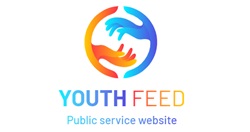great credit score: do this 2 get a loan without a salary advice.

The steps you take to improve your credit score will depend on your unique credit profile and financial situation. credit score Understanding the various factors that influence your credit score is crucial, as this knowledge can help you determine the most effective strategies to boost your score.
credit score The key factors that impact your credit score include your payment history, the amounts you owe, the length of your credit history, the mix of credit accounts you have, and any new credit inquiries or applications. Paying close attention to each of these elements and proactively managing them can make a significant difference in your overall creditworthiness.
In general, the most important factor in determining your credit score is your payment history, which accounts for 35% of your FICO Score☉. This includes a record of on-time, late, and missed payments that are reported to the national credit bureaus (Experian, TransUnion, and Equifax). Establishing a consistent track record of making all your debt payments on time is the single most impactful step you can take to improve your credit score.
The amounts you owe, or your credit utilization ratio, is another crucial factor, accounting for 30% of your FICO Score☉. Keeping your balances low relative to your total available credit can demonstrate responsible borrowing and help boost your score. Paying down outstanding debts, especially credit card balances, is an effective strategy in this regard.
The length of your credit history, which makes up 15% of your FICO Score☉, also plays a role. Lenders typically prefer to see a longer track record of managed credit, as this indicates more experience and stability. While you can’t significantly shorten the age of your credit history in the short term, you can maintain older accounts and avoid closing them unnecessarily.

The mix of credit accounts you have, which contributes 10% to your FICO Score☉, is another factor to consider. Demonstrating your ability to manage different types of credit, such as credit cards, loans, and mortgages, can positively impact your score.
Diversifying your credit mix, if possible, may be beneficial. Finally, any new credit applications or inquiries, which account for the remaining 10% of your FICO Score☉, can have a temporary negative impact on your score.
To minimize this effect, it’s generally recommended to limit the number of new credit applications and shop for rates within a short period, as multiple inquiries within a short time frame may be treated as a single inquiry. credit score
Depending on your unique financial situation, it can be challenging to determine where to start when it comes to improving your credit score. However, by understanding the relative importance of each credit score factor, you can develop a targeted strategy that addresses your specific needs and helps you achieve your credit goals more effectively.
You can take steps to improve your payment history and credit utilization if you’re having trouble making payments on time. Set up autopay for at least the minimum due and create calendar reminders and alerts through your online account.
You can also register for Experian Boost and get credit for payments that aren’t traditionally reported to the credit bureaus, including eligible rent, utilities, cellphone, insurance and some streaming subscriptions. Paying your bills on time can steadily raise your credit score. However, if you make a payment over 30 days late, it will remain on your credit report for seven years and hurt your scores.
The negative impact will diminish over time as you get caught up and pay on time going forward. To improve your payment history, you should also focus on paying down revolving account balances. The amount you owe accounts for 30% of your FICO Score, and your credit utilization rate – the percentage of available credit you’re using on revolving credit accounts like credit cards – is a major factor.
credit score While some experts recommend keeping your utilization rate below 30%, the lower you can keep it, the better. If you’re struggling to make on-time payments, there are several steps you can take to improve your payment history and credit utilization. First, set up autopay for at least the minimum due on all your accounts.
This will ensure your payments are never late, even if you forget or miss a due date. Additionally, create calendar reminders and alerts through your online accounts to stay on top of upcoming payments.credit score, Beyond managing your payments, you can also take advantage of Experian Boost, a free tool that allows you to get credit for payments that aren’t traditionally reported to the credit bureaus.
This includes things like rent, utilities, cellphone bills, insurance premiums, and even some streaming subscriptions. By linking these accounts, you can potentially see a steady rise in your credit score as your positive payment history is factored in. Paying your bills on time is crucial for maintaining a strong credit profile.

If you do happen to make a payment that’s more than 30 days late, it will remain on your credit report for up to seven years and negatively impact your credit scores. However, the impact of that late payment will diminish over time as you get caught up and demonstrate a consistent pattern of on-time payments going forward.
In addition to payment history, the amount you owe also plays a significant role in your credit scores. Credit utilization, which is the percentage of your available credit that you’re using, accounts for 30% of your FICO Score. While some experts recommend keeping your utilization rate below 30%, the lower you can keep it, the better.
Aim to pay down balances on your revolving credit accounts, such as credit cards, to improve this important credit factor. By taking a multi-pronged approach to improving your payment history and reducing your credit utilization, you can make meaningful strides in strengthening your overall credit profile. credit score These efforts can lead to higher credit scores, better terms on loans and credit, and greater financial flexibility in the long run. When it comes to personal finances, managing debt should be a top priority.
Carrying a significant amount of debt, especially high-interest credit card balances, can be a major burden and can hinder your financial progress. It’s important to make paying off these debts a priority in your budget and financial planning.credit score Eliminating credit card debt should be a key focus, as the interest rates on these types of loans are often very high, sometimes reaching 20% or more.
credit score The longer you carry a balance on a credit card, the more you end up paying in interest, which is essentially money that could be better used elsewhere, such as saving for the future or investing. Devising a plan to systematically pay down your credit card balances is crucial. This may involve consolidating multiple cards into a single loan with a lower interest rate, increasing your monthly payments, or prioritizing the cards with the highest interest rates.

By making debt repayment a priority, you can free up more of your income to put towards other financial goals, such as building an emergency fund, saving for a down payment on a home, or contributing to retirement accounts. In addition to credit card debt, it’s also important to have a strategy for managing other types of debt, such as student loans or auto loans.
While the interest rates on these debts may be lower than credit cards, they can still have a significant impact on your overall financial situation. Developing a plan to pay these loans off efficiently can help you achieve financial stability and freedom in the long run.
credit score By making debt repayment a top priority, you can take control of your finances, reduce the burden of interest payments, and free up resources to invest in your future. This proactive approach to debt management can set you on a path towards greater financial security and well-being.

